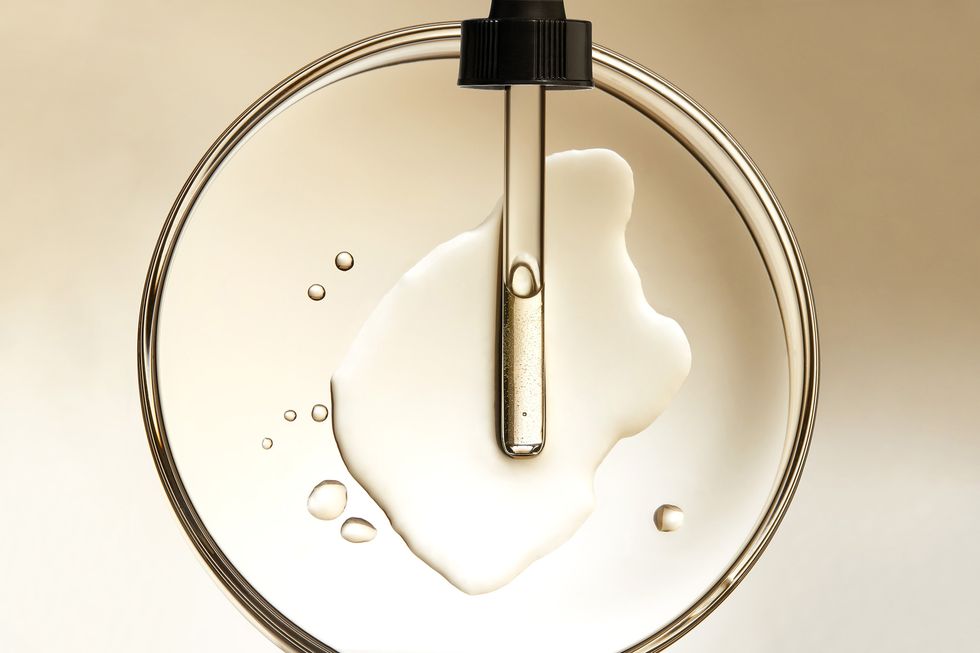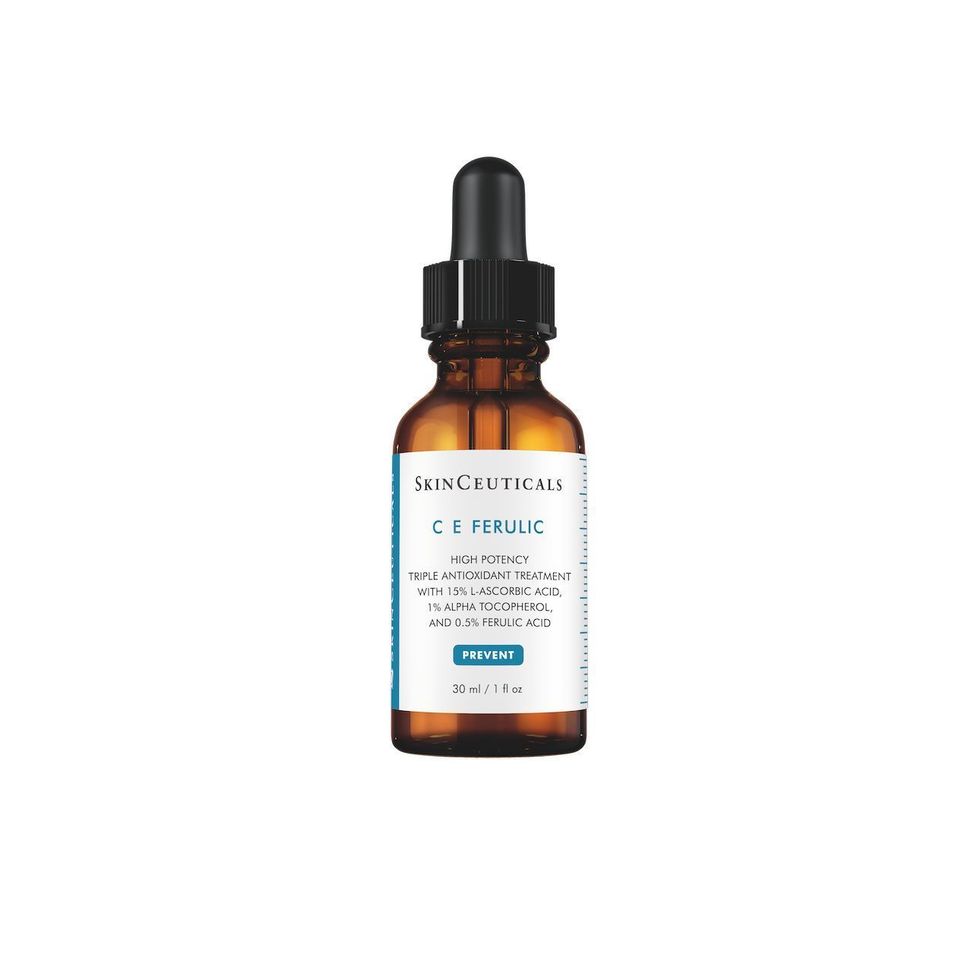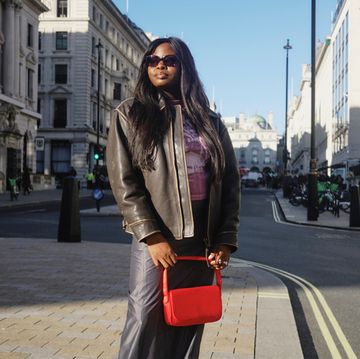You’d be hard-pressed to find a skincare enthusiast without an arsenal of antioxidants in their beauty cabinet. But why are they so coveted within the skincare space? Are they an essential part of our daily routine – if so, which ones do we need and how should we use them?
We spoke to skin expert Dr Ana Mansouri to shed some light on the perplexities of antioxidants.
What is an antioxidant?
'An antioxidant is an active ingredient that neutralises free radicals,' explains Dr Mansouri. 'Free radicals are unstable molecules that damage our skin cells, caused by environmental exposure such as pollution, smoking and UV rays.' Without turning this into too much of a science lesson, the protective properties of antioxidants are due to electrons within them. 'Antioxidant molecules carry extra electrons that act as a protective buffer, taking the damage hits from these free radicals instead,' Dr Mansouri explains.
What are the skincare benefits?
So, the electrons effectively form a free radical shield, which sounds like a good thing – but what does it actually mean for our skin? 'In reality, antioxidants reduce inflammation, allowing the skin to correct damage,' says Dr Mansouri. We see this damage show up as signs of ageing, like hyperpigmentation, dark spots, fine lines and wrinkles. 'Antioxidants are actually slowing down the ageing process,' she adds. 'Usually, you would start to see results within weeks of using antioxidants. You'll notice a healthier, brighter-looking complexion with more radiance. Over time, with regular use, you'll also notice an improvement in pigmentation and firmness.'
What is the best antioxidant?
There are myriad of antioxidants to choose from, including silymarin, resveratrol and vitamin D, but Dr Mansouri recommends starting with one hero antioxidant that tackles a range of skin concerns: vitamin C. 'It's by far the most powerful and should be the staple of your antioxidant regime,' she says.
How should I incorporate it into my skincare routine?
Unlike the majority of your hard-working formulas, vitamin C should not be applied at night. 'The best way to use vitamin C is in the morning as a protective layer against the environmental damage you will be exposed to during the day,' advises Dr Mansouri. 'Apply it to clean, dry skin after cleansing, followed by your chosen serum and moisturiser, before finishing off with an SPF.'
Can everyone use vitamin C?
One of the great things about vitamin C is that it's suitable for the majority of skin types. However, Dr Mansouri stresses that you should still be mindful about choosing a product that's suited to your particular skin type and concern. 'If you struggle with sensitivity, sometimes vitamin C might be irritating. In this case, I always suggest starting with a lower percentage.'
If you're new to vitamin C and unsure how your skin will react, Dr Mansouri also recommends starting slow and increasing the frequency gradually. 'If you’re worried about sensitivity, start applying it a couple of times per week and then work your way up to daily as tolerated,' she says.
Which vitamin C product should I pick?
With so many products to choose from, it’s worth knowing that how this ingredient is formulated is integral to its success. 'Vitamin C is a delicate molecule that can be damaged when exposed to oxygen, so you really have to choose a stable, effective formula that's correctly absorbed and that works with your skin,' cautions Dr Mansouri.
And what does she think sets apart the good from the great? Clinical research. 'SkinCeuticals vitamin C serums are proven, evidence-based formulas, with years and years of clinical research compared to other products on the market,' she explains. 'The brand's formulations are patented and very carefully created to support optimal absorption and efficacy.' In fact, SkinCeuticals formulates its patented antioxidants under very specific parameters, such as only using pure vitamin C (L-Ascorbic acid), in a concentration of 10-20% and with a pH below 3.5 – which is a technical way of saying you get a product with maximum efficacy.
Here are Dr Mansouri's top three recommendations:
For dry, mature skin
'SkinCeuticals C Ferulic is an excellent option for dry or mature skin and those who are worried about signs of ageing, such as wrinkles and loss of elasticity.'
For normal or combination skin
'For normal or combination skin types I recommend SkinCeuticals Phloretin CF, especially for those who are worried about pigmentation or uneven skin tone.'
For oily skin
'SkinCeuticals Silymarin CF is perfect for combination or oily skin types and those who are blemish-prone, as it helps with oil oxidation, on top of all of the usual benefits you’d get from a vitamin C.'
Find your ideal antioxidant at skinceuticals.co.uk.















